Why communication and mediation will be key in recovering nightlife
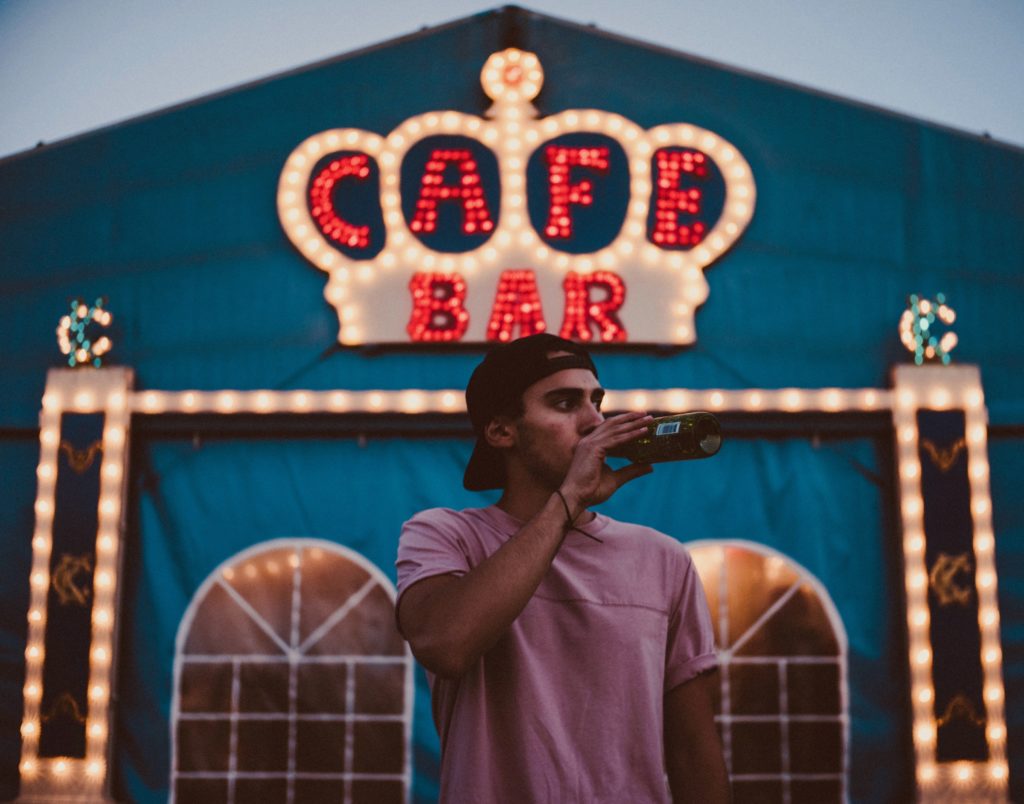
“Outreach is more important than ever” A discussion of one of the key themes of the recently released Global Nighttime Recovery Plan, featuring comment from NYC night mayor Ariel Palitz, Orlando Nighttime Economy Manager Dominique Greco and Vilnius Night Alliance’s Mark Adam Harold.
Of all the human truths laid bare by the pandemic of 2020, one is of particular comfort: the instinct to socialise is universal. And, despite early speculation to the contrary, that instinct has not been doused by fear of infection or acclimatisation to the lockdown couch.
The past few months have shown that coming together to socialise – be it dining, drinking or dancing – is more valuable than ever in maintaining a sense of community and coping with the collective trauma the pandemic has laden on us all. Be it the ill-prepared illegal field raves of the UK, where the only thing kept at a distance was the concept of physical distancing itself, the understandable but unregulated sidewalk socials that sprung up in New York after take-away alcohol was introduced, or the well-meaning yet infamously off-putting chair raving experiment of Amsterdam, nightlife culture is willing itself back into existence, one way or another. This alone would make the safe, structured and legal reopening of the nighttime economy a goal urgently worth pursuing, even before considering the now – finally – widely reported fact that nightlife in any global city is a huge industry, the shutdown of which has left gaping holes in national economies, and millions out of work indefinitely.
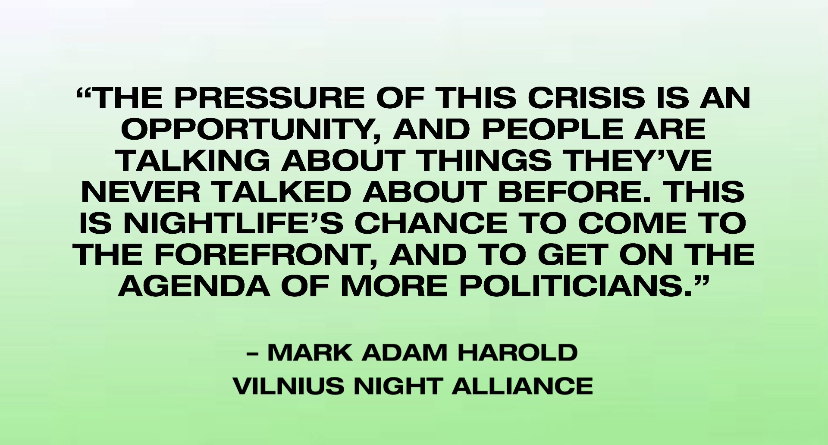
Nightlife as we knew it is off the cards, for now. Its close-quartered, spontaneous, contact-riddled nature creates perfect conditions for spreading COVID-19, as explained by health experts; as proven by club and bar related outbreaks in Tokyo, Seoul and Berlin, to name some high profile examples. However, as proposed by the creators of VibeLab’s recently released Global Nighttime Recovery Plan, there is a way forward. Though timelines may vary, all cities will eventually have opportunities to reboot their social economies and provide safe, accountable alternatives to unsafe illegal events. Livelihoods, lifestyles and lives are at stake.
Based on health advice, industry expertise and the example of several pioneering cities, the first chapter of the Global Nighttime Recovery Plan (GNRP) focuses on use of outdoor space as the safest and most obvious context for reopening, exploring ways to manage both sound and cities’ finite available space, to create open-air nightlife that is both safe and feasible in the context of COVID-19. But, as noted by the chapter’s lead author, Mark Adam Harold of the Vilnius Night Alliance, the study highlighted an adjacent issue that must be addressed effectively if the nightlife economy is to reopen safely, outdoors, or indeed in any other capacity…
Effective communication and mediation within the community is key to recovery, and in most cities, needs work.
The rapid and fluctuating nature of COVID-19’s spread through populations has made the communication and enforcement of government policy a difficult task; in the nightlife industry it has particular significance. Given the high-risk nature of nightlife as we were used to experiencing it, combined with industry’s need, historically, to constantly defend its right to exist, the community’s awareness, understanding and adoption of nightlife’s new and changing realities in their area will make or break the local industry’s fragile path to recovery.
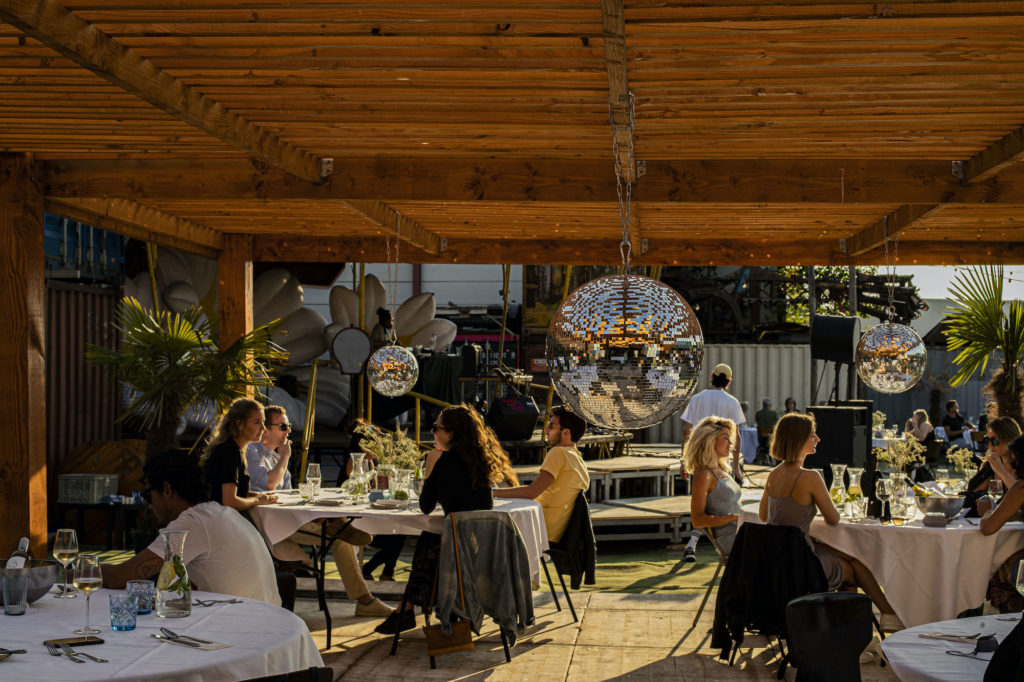
“Keep the communication constant and consistent” the GNRP advises, citing an example in Orlando, Florida, where disregard of this necessity eroded trust in local authorities, and reduced compliance. “On June 26, Florida state announced a second shutdown of bars with a single tweet from its Department of Business and Professional Regulation, giving no warning to lower levels of government. This led to chaos as local authorities scrambled to disseminate the news and answer questions they had no answers to, damaging their reputation in the eyes of the public.” The GNRP’s Mark Adam Harold recalls that inconsistency in enforcement of restrictions in Vilnius had the same result. “We had big problems with different enforcement agencies applying the rules inconsistently, in some cases selectively, or simply misunderstanding the rules. And this caused a lot of mistrust within the public. Because people stopped listening to the rules and trusting those giving advice, the system broke down.” In such instances, it is often venue operators who shoulder most of the blame and the repercussions.
In many ways it’s the kind of challenge the nightlife industry is used to. Community outreach and compliance with restrictions has always been essential to such businesses’ survival. But the stakes are higher now, and the responsibility cannot fall to venues alone.
“Good visuals and simple campaigns are very helpful.” states the GNRP, using New York City as a valuable example of the kind of support local governments can provide operators in conveying the new realities of attending their venue. “We have done multiple campaigns to help [venues] communicate with their neighbours and patrons about rules and guidelines,” says Ariel Palitz, Senior Executive Director of New York City’s Office of Nightlife, or more colloquially, NYC’s night mayor. In the early months of New York’s lockdown, hospitality venues were permitted to provide delivery and take-away alcohol services, their only source of revenue during lockdown. However, this concept led to impromptu and unregulated sidewalk socialising, so the NYC nightlife office stepped in to help. “New York has never had takeout and delivery [of alcohol] before Covid, and it was tempting for patrons to gather on the street,” Palitz explains. “So we had to do a campaign to get the message across. We provided window posters, saying, ‘Take Out, Don’t Hang Out.’ Helping to communicate we really could not have people hanging out in front of businesses. Sometimes it just boils down to a poster, simple tools like that. So the venues can point to the poster and say: ‘it’s not us, it’s the government, you can purchase your drinks but you can’t stay here.”
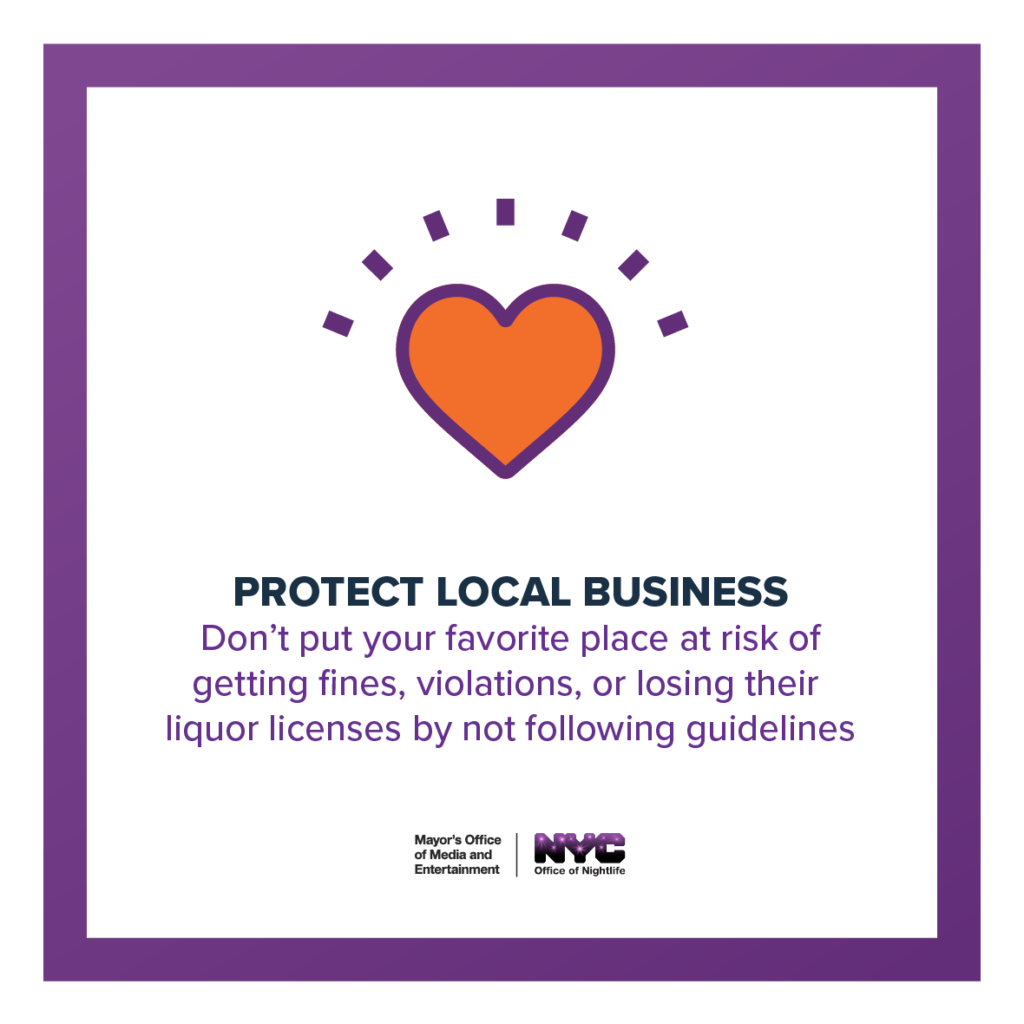
As circumstances in New York improved, and al fresco drinking and dining became possible, the NYC Office of Nightlife’s messaging kept pace. “Now that we have the outdoor seating allowances we have a new campaign,” says Paltiz. ‘It’s up to you, New York.’ Socialise responsibly, take care of yourself, look after each other, care about the neighbourhood.” The campaign, which seeks to shift all of the onus for non-compliance from falling on bars and restaurants and share it amongst the community, was particularly crucial following the executive order from New York State Governor Andrew Cuomo in June, which declared venues liable for the actions of their customers on their property and within 30 metres of it, patrons’ non-compliance potentially resulting in an on-the-spot loss of liquor license. With bars and restaurants’ resources already stretched to the limits in adapting to new conditions, let alone enforcing them, it’s a potentially prohibitive level of responsibility to place on businesses seeking to reopen. “Instead of saying it’s completely up to the bars to take care of and enforce everything,” says Palitz, “the campaign communicates that it’s up to you, New York – it’s up to all of us to do that.”
“Encourage responsible behaviour, self-policing, and continued caution” – Global Nighttime Recovery Plan
Instilling a sense of personal responsibility in nightlife participants has for a long time been an important tenet of nightlife advocacy, touted as a more effective preemptive policy alternative to reactionary prohibition and punishment. Enjoying nightlife responsibly in the midst of a pandemic is not merely about adhering to health guidelines. As the GNRP notes, with increased demand for outdoor space comes increased likelihood of friction with local residents, noise pollution being the most common grievance.
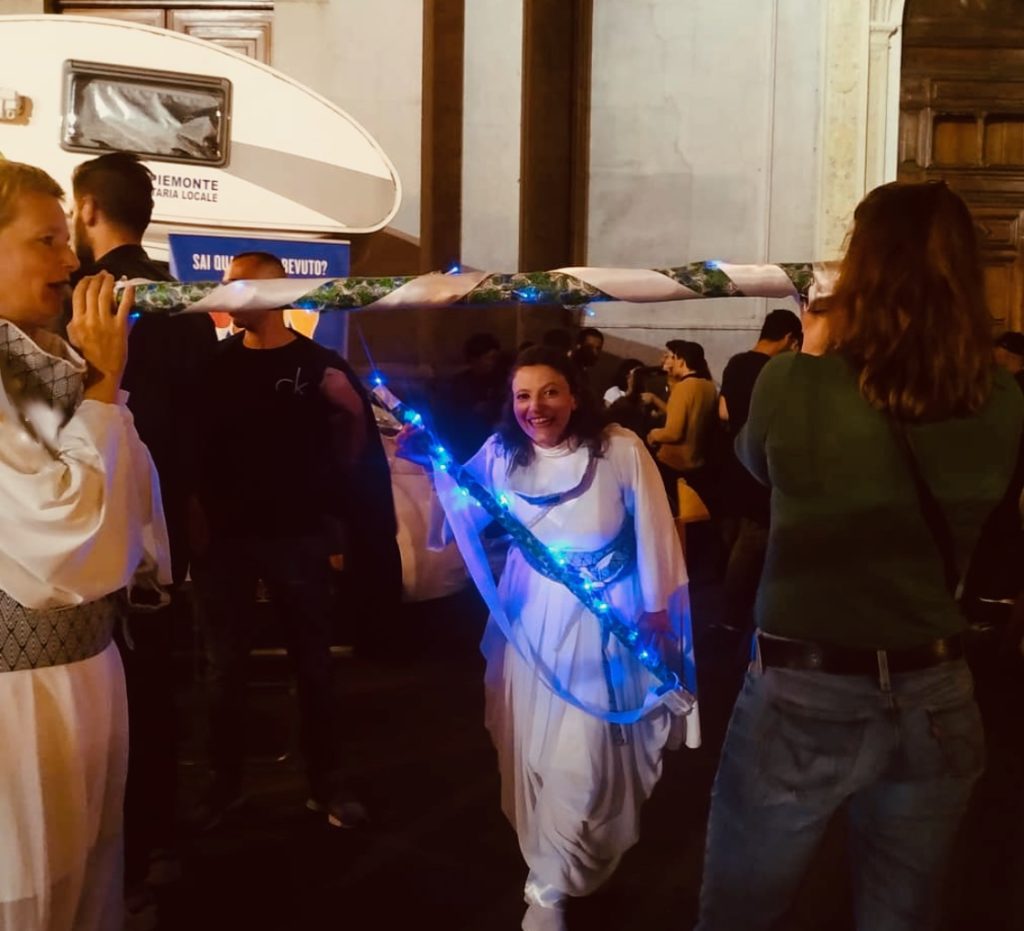
In Paris, where outdoor licenses have also been relaxed for hospitality venues, an already existing campaign has become more valuable than ever. Entre les Pierrots de la Nuit, a Parisian NGO which for a decade now has supported nightlife businesses in developing neighbourhood-friendly practices, and engaged in community outreach on issues such as noise – with particular performative flair. The city-funded Pierrots de la Nuit use a two-pronged approach, captivating the public with a creative performance – mime, for example – and piquing their curiosity, followed by a friendly mediator, who explains the approach, the issues of noise and its impact on local inhabitants, and the repercussions of their complaints for the venues.
Usually, the Pierrots will target around 300 of Paris’s most problematic venues for noise, but now they are spread too thinly. Since emerging from lockdown, bars and restaurants have been allowed to extend, or create, their own outdoor environments, using carparks and pavement space, resulting in 5000 added terraces in the city. For many, the ambience of the city is much improved, but noise pollution is undoubtedly on the up, with a 20% increase in complaints since the previous year. Tension between local inhabitants and hospitality venues is growing, but the resources simply aren’t there to ensure the rules – and neighbours – are being respected.
Channeling funding and creative energy into projects like the Pierrots is clearly more important than ever, providing a way to communicate guidelines and mediate social situations by introducing an actor who is neither police nor venue operator. In some cities there is an opportunity to repurpose existing roles of this kind to aid in reopening during the pandemic, like Amsterdam’s ‘square hosts’ for example, who in livelier times roamed the city’s busy Rembrandtplein providing assistance and de-escalating fractious situations after dark, and could now be used as ready-trained manpower to convey and encourage compliance with the new normal of the night experience.
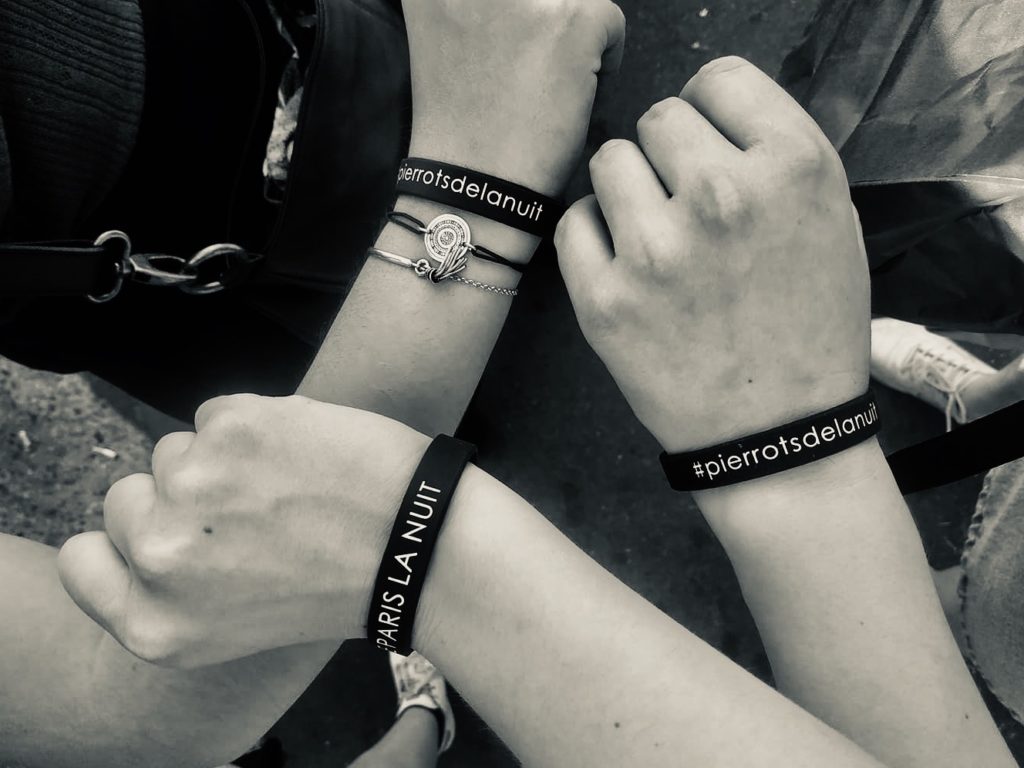
In Orlando, Florida, a similar community-assistance role has become invaluable during the pandemic, diversifying from tourism and resident liaison to now provide a channel for communicating and enabling safety regulations and collecting feedback from street level. Dominique Greco, Orlando’s Nighttime Economy Manager and contributor to the GNRP, describes the Downtown Orlando Ambassador Program as “arguably the most flexible program in the city!”
“Without ever predicting that a global pandemic would be our 2020 reality, the ambassador program feels as though it was built for the challenge,” says Greco. “Our ambassadors are around-the-clock, seven days a week, informed professionals that can pivot quickly. In addition to their ‘standard’ duties such as engaging with people experiencing homelessness about available resources, observing and reporting statistics, offering assistance to residents, businesses, visitors, and so much more – they have now begun disinfecting popular touch-points, and even distributed 250,000 face masks to almost every storefront business in our downtown in less than three days.”
Greco intends that these ambassadors will eventually be able to aid in the return of the social economy as well. “Hopefully, ambassadors will play a role in the safe reopening of our hospitality and nightlife industry by making visitors feel comfortable when they start to return. They also serve as the most around-the-clock eyes and ears in our downtown, sharing information and issues to the appropriate authorities.” When Orlando is ready to re-trial a reopening of its nightlife economy, its ambassadors will not only supply consistency of real-time data, they can provide that all-important buffer between the community and enforcement agencies, at a time when use of police for enforcement is particularly fraught in America.
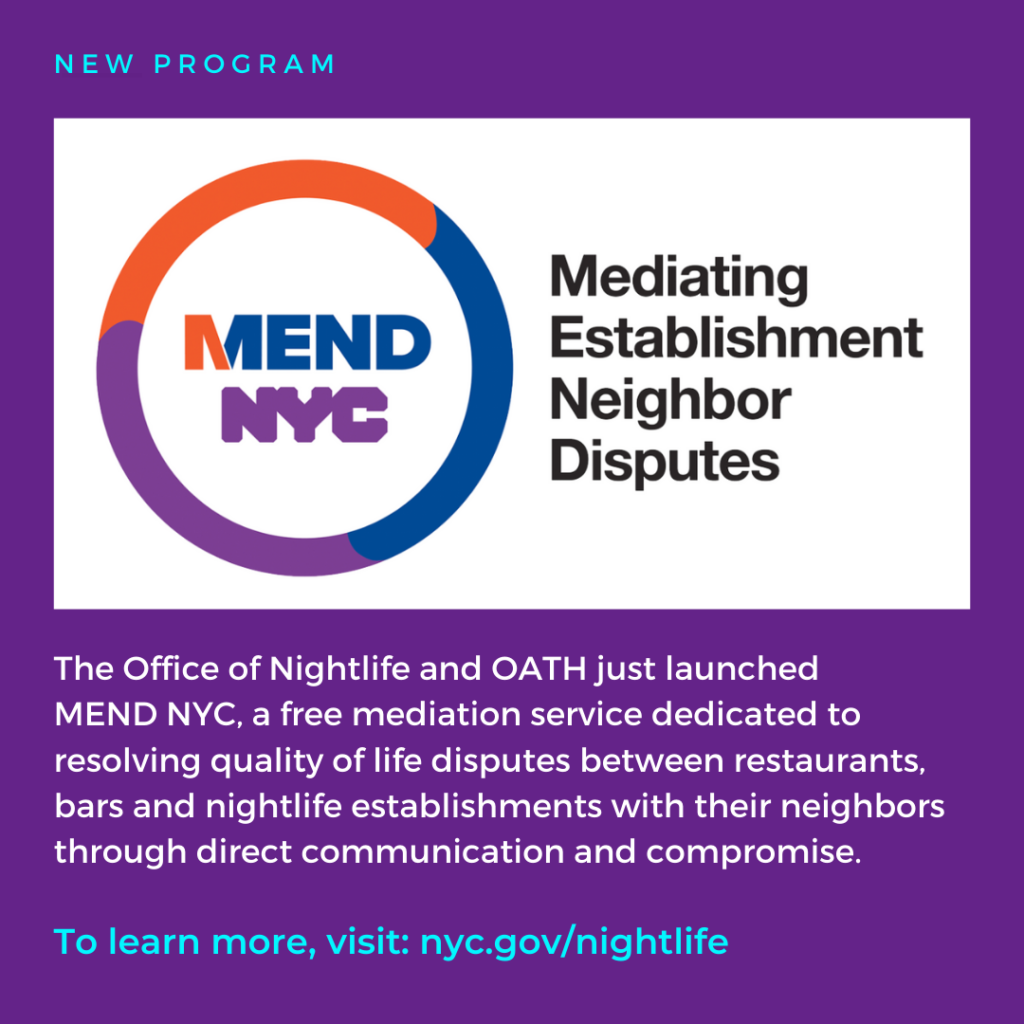
Back in NYC, Ariel Palitz’s team is already exploring new forms of mediation with the recently launched MEND NYC program, which seeks to “help New York City and its nightlife community find common ground and thrive together, again.” Palitz explains the program, already piloted and now made official with the support of NYC Mayor Bill DeBlasio, as “a program to provide free mediation between neighbours and bar owners. If you have a problem with the bar or restaurant downstairs, instead of first calling the police or the community boards or the council, you can call our office and we can provide free mediation, to heal the relationship, create direct communication and compromise, and get it out of the enforcement process if possible.”
As city nightlife culture redefines itself, and increasingly spreads into the public space, communication and mediation will be the key to the community’s compliance, harmony and safety. Responsibility for this cannot fall to venues alone, nor should it be immediately referred to enforcement authorities. As the Global Nighttime Recovery Plan concludes:
“We need genuine local government by the people, for the people.”
“The pressure caused by the pandemic has shown that city authorities need to be close to their populations, to communicate clearly with their residents, to win the trust of their business communities and to encourage genuine partnership and cooperation between all interest groups. Cities that learn to do this well will be at a significant advantage as we recover from this crisis, and they will be more than ready to deal with the next.”
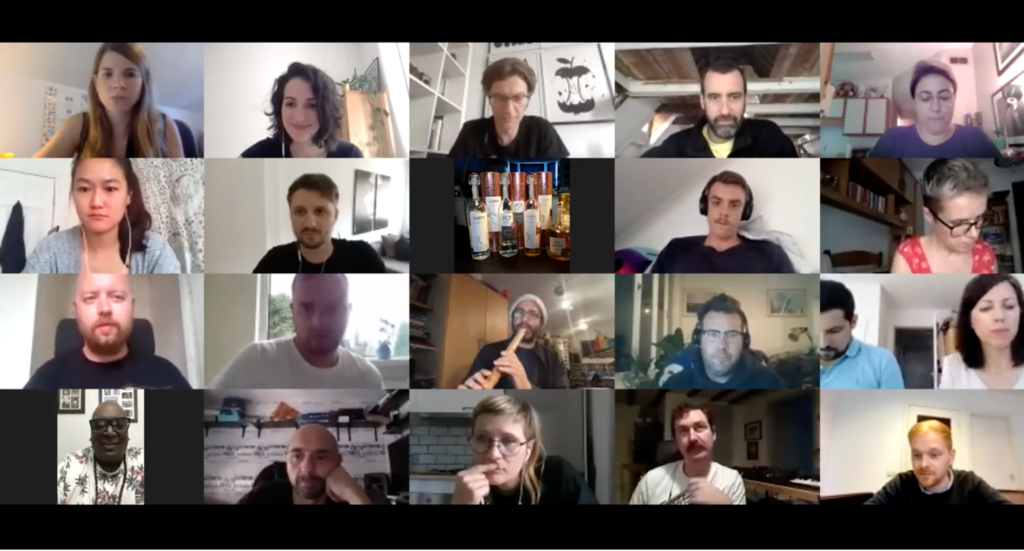
Our Features section publishes exclusive original content created by nighttime.org associates, going deeper into global COVID-19 response strategies and scene perspectives by drawing on our international network of night mayors, nightlife advocates and industry stakeholders for comment.
If you would like to contribute, contact hello@vibe-lab.org with your pitch.
